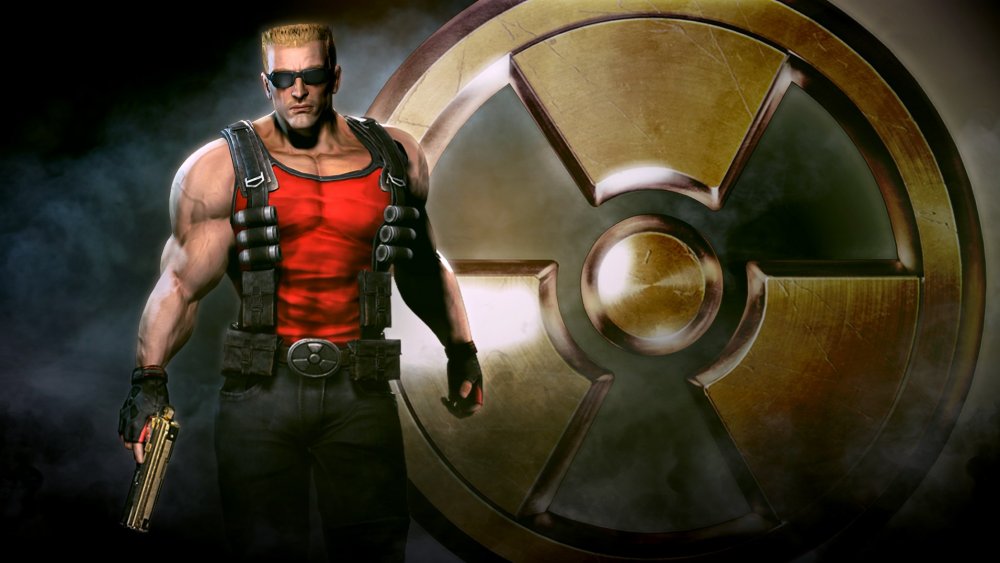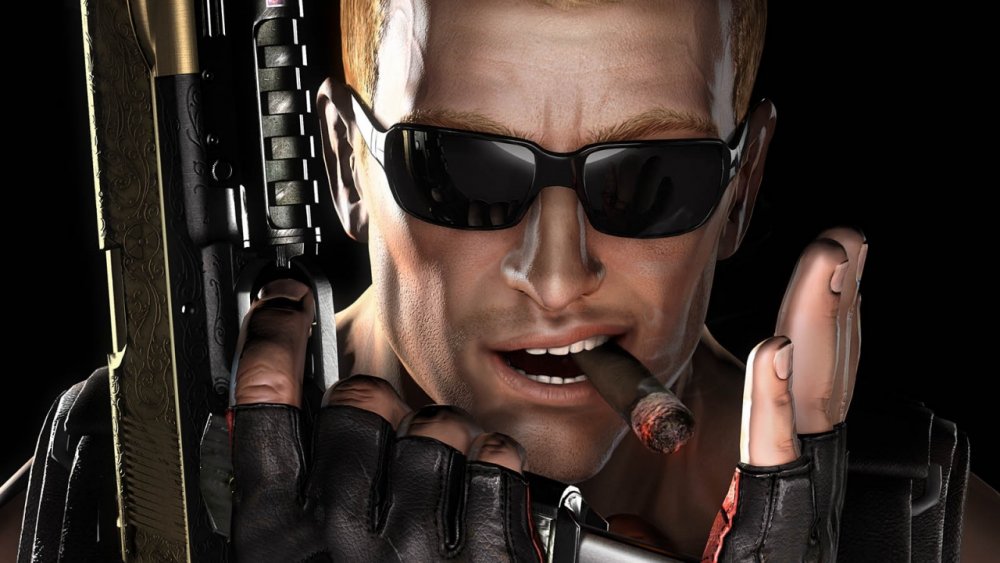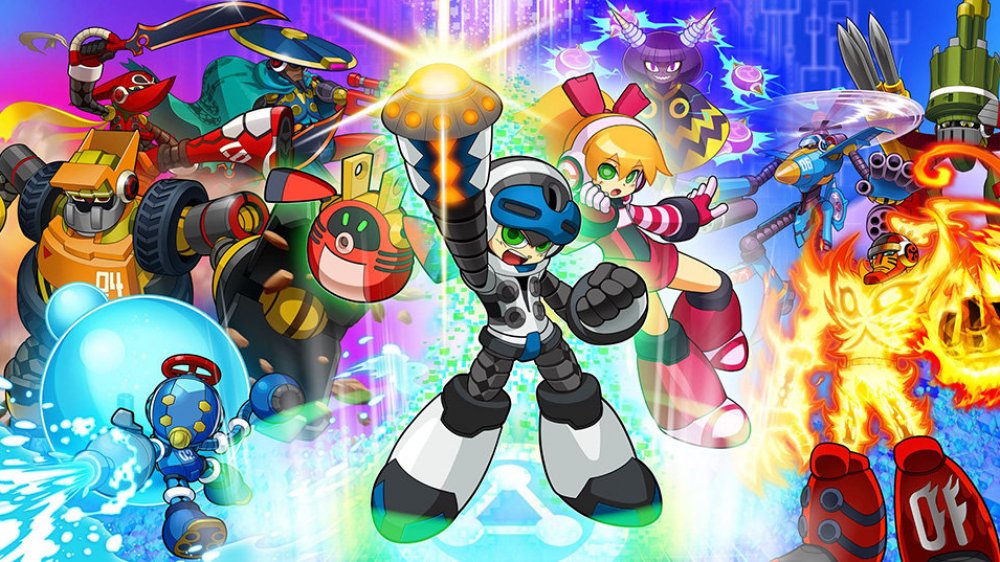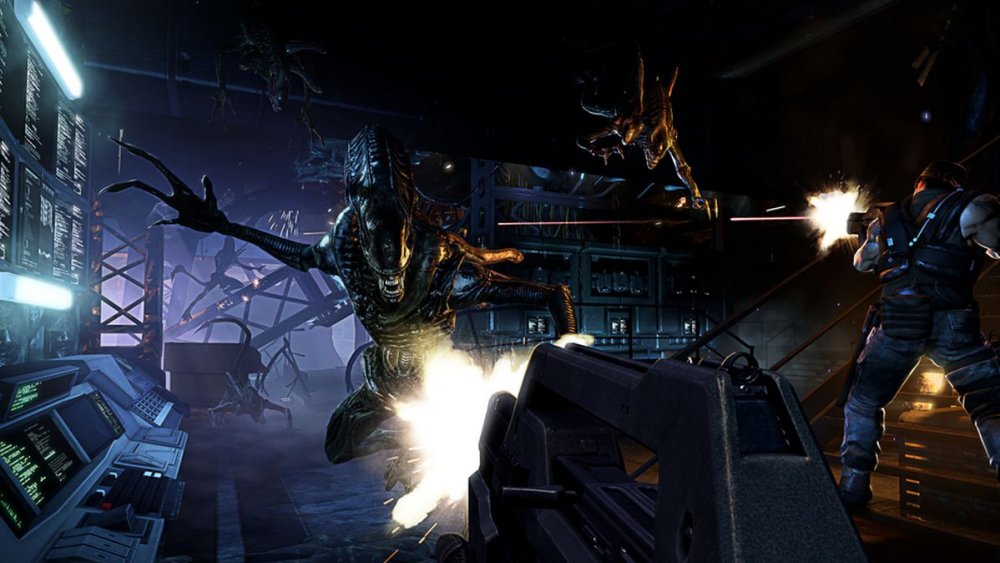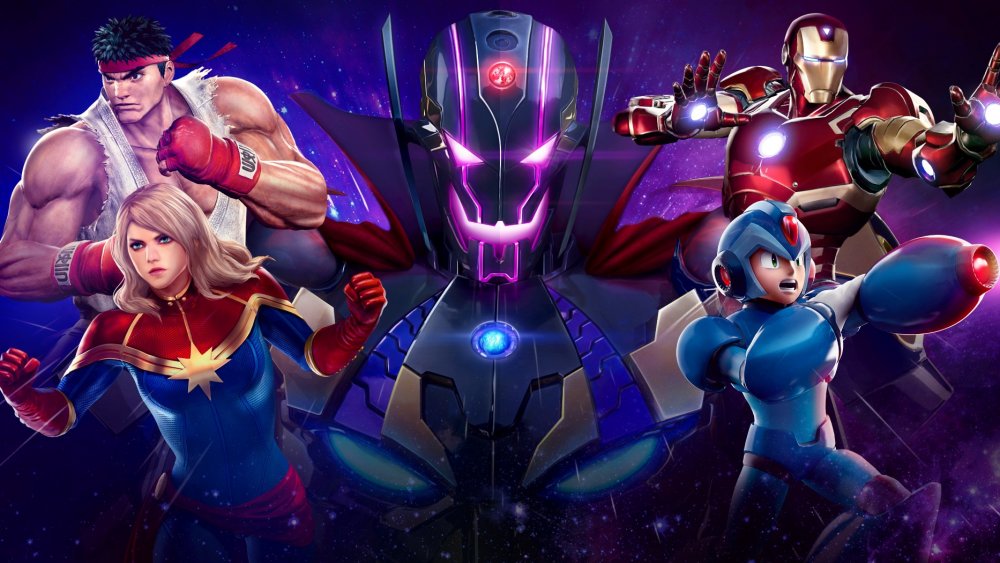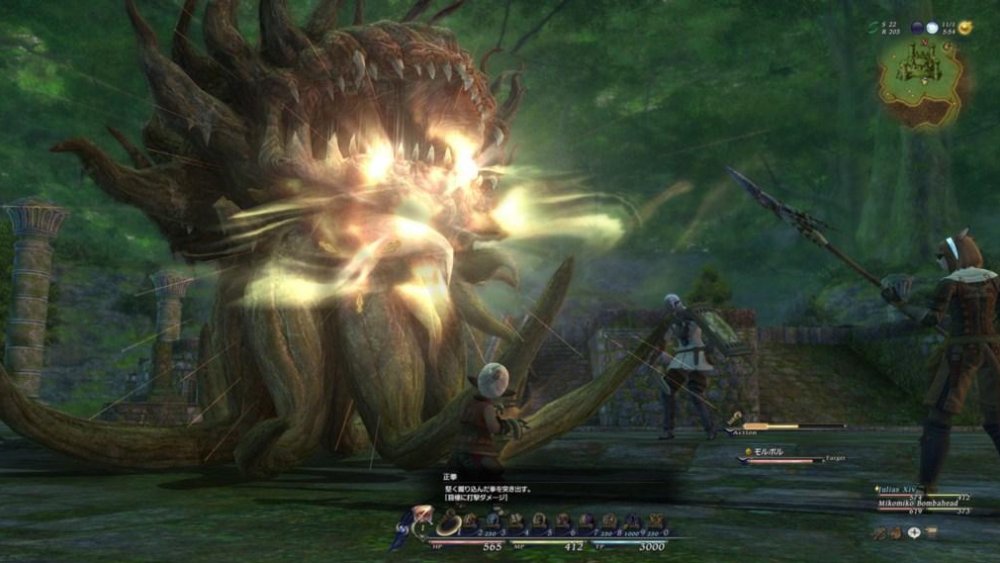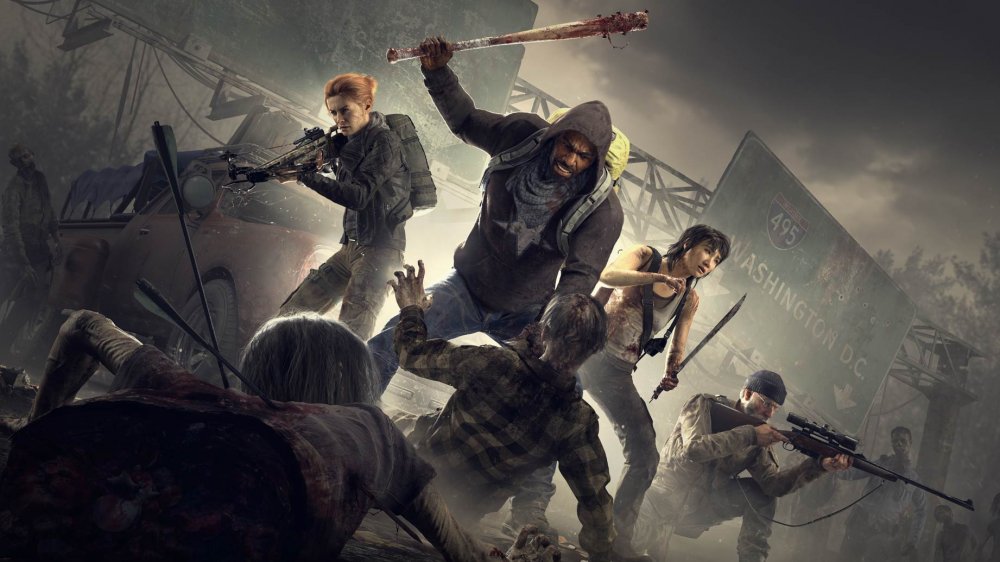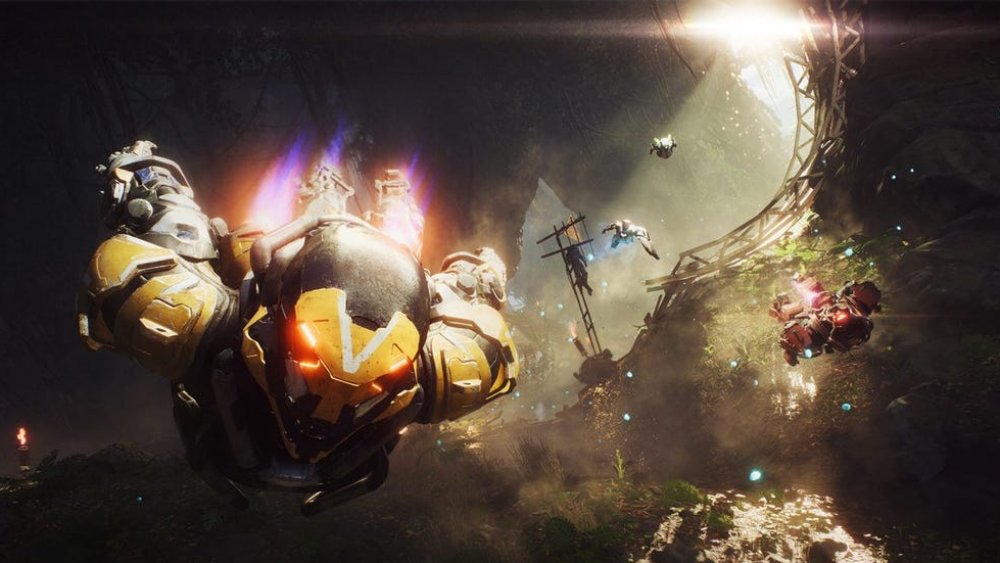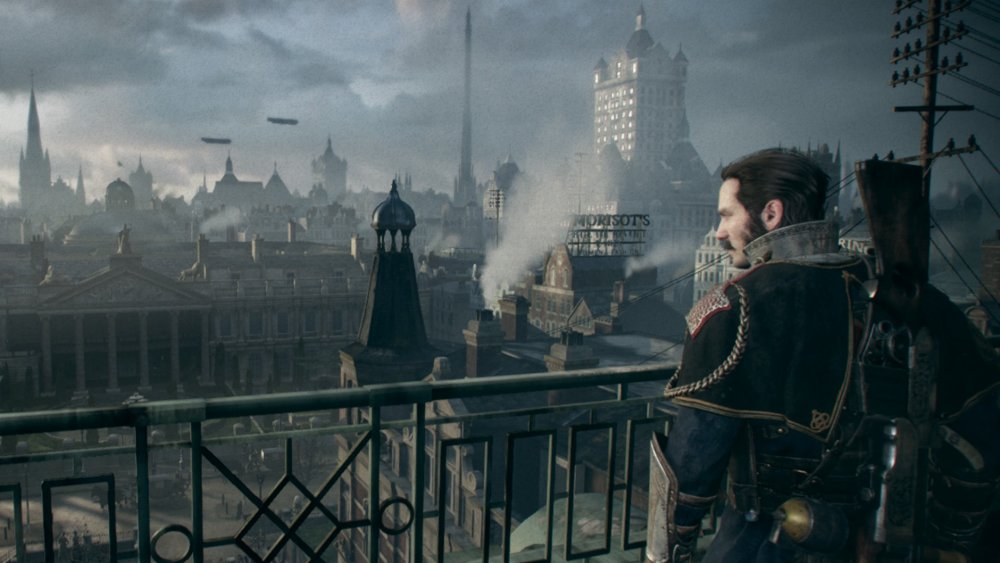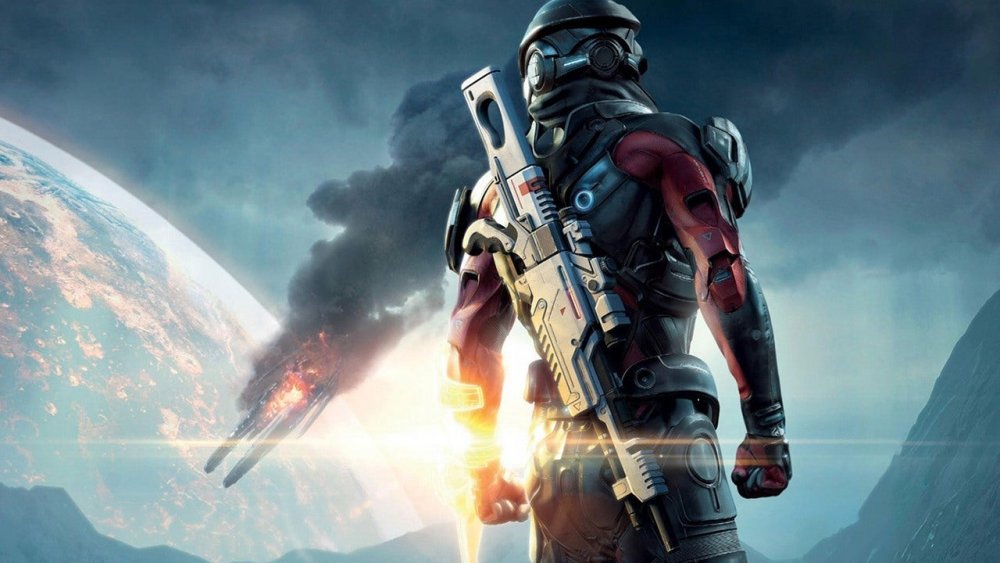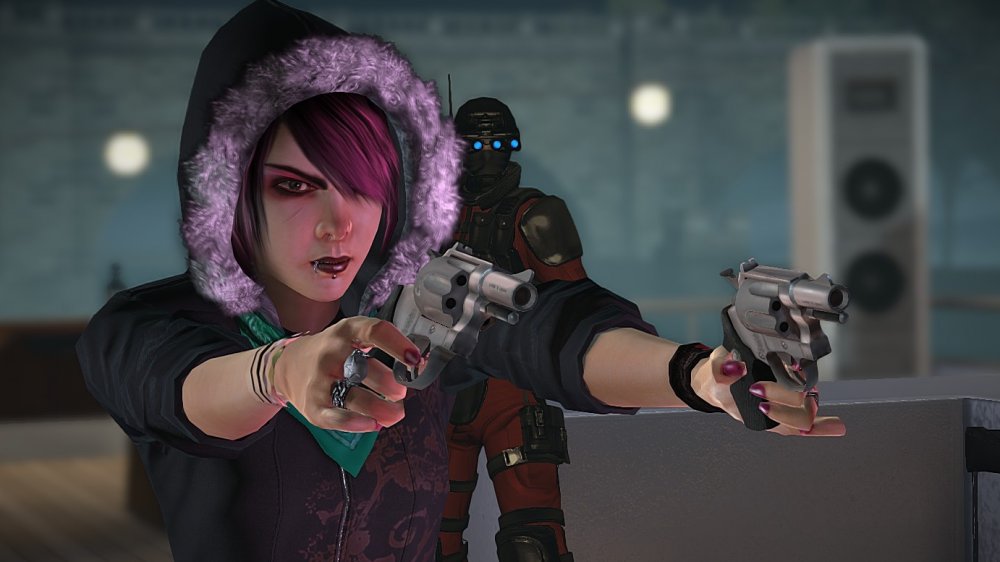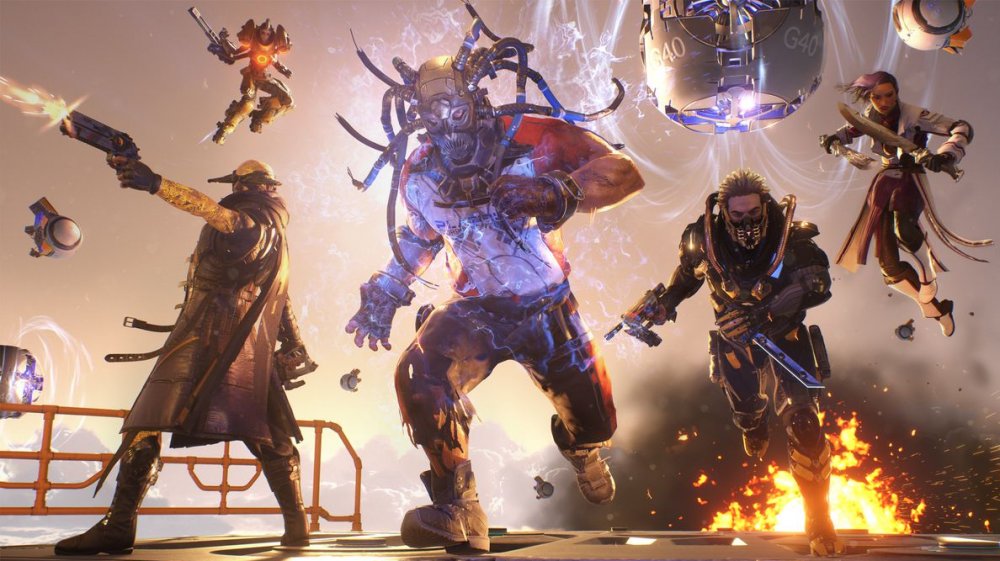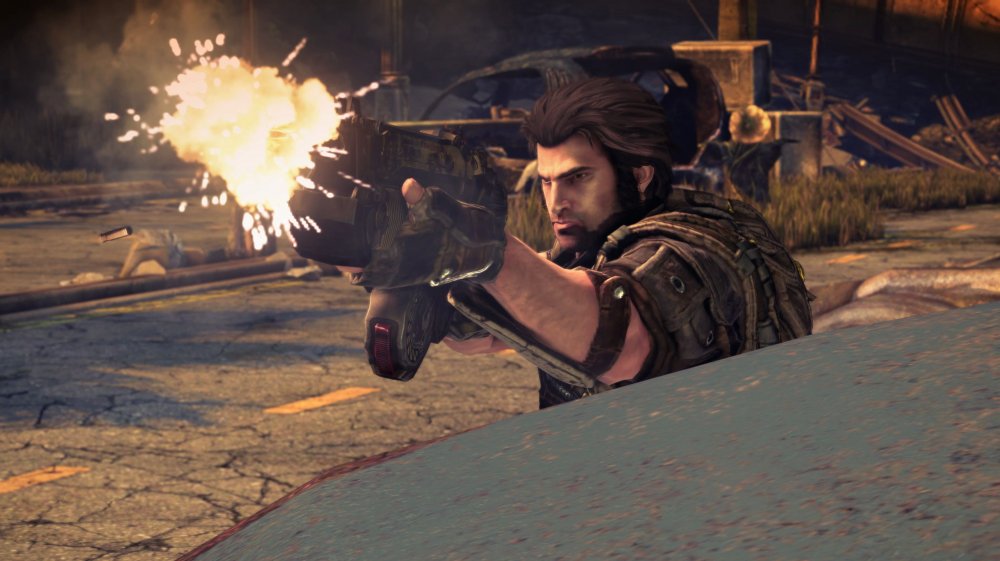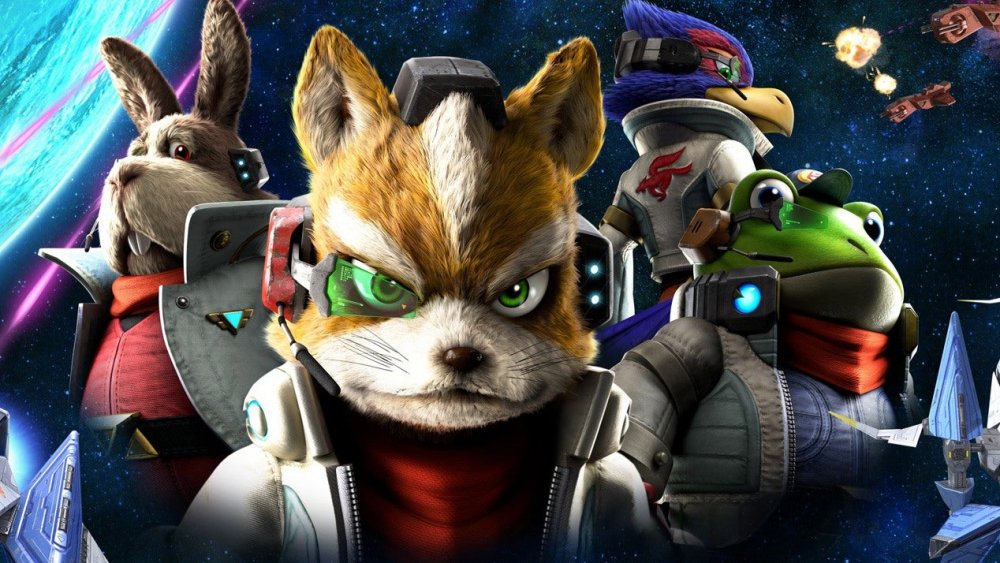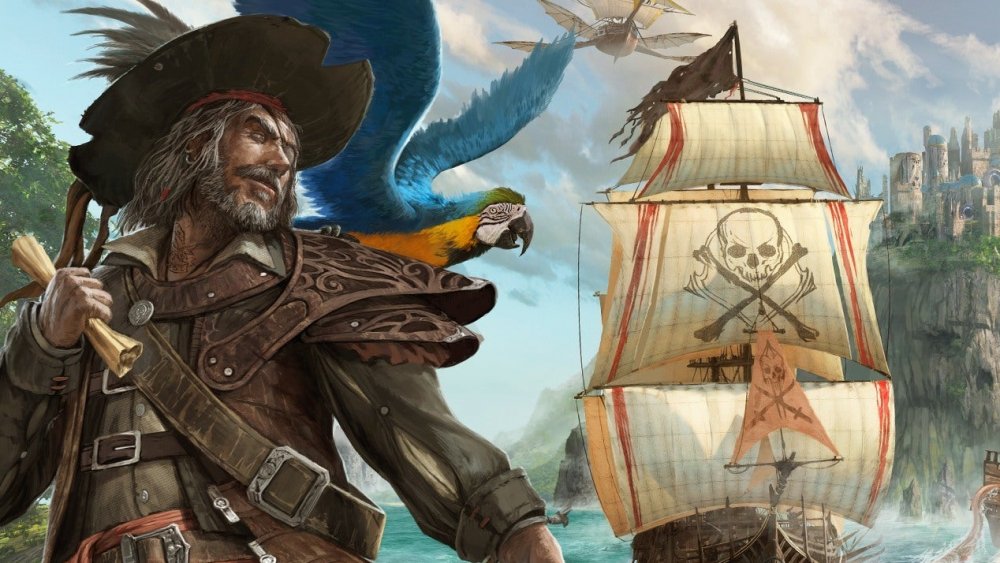Overhyped Games That Totally Flopped This Last Decade
Hype can be a dangerous thing. As with any popular medium, consumers and creators often set themselves up for a horrible fall in the video games industry. For every home run, you'll encounter just as many (if not more) heartbreaking misses. Sometimes these disappointments stem from preconceived notions about what a particular release should feature. At other times, the blame falls entirely on the shoulders of the people making these products for inadvertently or intentionally misrepresenting their games.
Whatever the case, plenty of titles released during the last decade have not fulfilled the lofty goals laid out for them. The purpose of this list is not to dogpile on failed projects. Even massive, well-established franchises have a black sheep or make missteps the community can learn from. Players may have forgiven these sins, but they rarely forget. With that in mind, here are the past decade's most overhyped flops.
Duke Nukem Forever took forever
Duke Nukem Forever has become the poster child of underwhelming products released following years of development hell. It's almost impossible to put together a list like this and not include DNF. Lest you forget, this was essentially the video game world's version of the Guns N' Roses Chinese Democracy album debacle. Fans waited and speculated for over a decade, yet, when Duke Nukem Forever finally hit stores it was met with a collective: "Really? That was it?"
Following years of hype and delays, Gearbox Software secured the rights to Duke Nukem Forever and completed the game. Unfortunately, the title felt like a holdover from an era long gone, complete with muddy graphics, uninspired shooting mechanics, and humor that ranged from sophomoric to downright offensive. Duke Nukem Forever barely made a profit, likely thanks to hardcore fans and the morbidly curious. Still, the damage to the IP had been done. The disappointment with the game extended beyond sales or reviews. USgamer's Bob Mackey described the problem perfectly: "If Forever had been bad, it would at least be memorable. Instead, it came into being as pure mediocrity."
Mighty No. 9 was apparently "better than nothing"
Mighty No. 9 seemed to have everything going for it. Essentially a love letter to the Mega Man franchise produced by the Blue Bomber's creator, Keiji Inafune, developer Comcept pitched the game on Kickstarter in 2013 as a return to old-school 2D action-platforming. It hit its initial goal of $900,000 within just two days. Even with numerous delays, the hype for the game remained palpable, to the point Legendary Pictures announced plans to adapt the still-unreleased game as a live-action motion picture. People were treating Mighty No. 9 like it was going to be the second coming for classic action games.
Unfortunately, the final product, which didn't quite resemble the concept art or style shown to backers during the original Kickstarter campaign, was a critical failure, enraging many of the fans who had backed the game. Comments made by Inafune likely exacerbated these feelings: "This is what you see and what you get ... even if it's not perfect, it's better than nothing." The problem is that "nothing" would have cost considerably less time, energy, and money.
Aliens: Colonial Marines alienated fans
In a world where games with media tie-ins seem destined to fail, the Aliens franchise has done a decent job of delivering consistent quality, with titles like Alien: Isolation impressing critics and fans alike. Sadly, this quality did not carry over to Aliens: Colonial Marines, a game so reviled when compared to its impressive marketing that it spawned a lawsuit from fans who felt Gearbox Software had misrepresented their product.
The final game looked significantly less impressive than the original trailers, but it was the horrendous enemy A.I. that inspired the most mockery. Enemies would walk right past the protagonist or remain completely stationary, a problem traced back to a single typo in the game's code. Gearbox CEO Randy Pitchford claims he lost between $10-15 million of his own money to the project. All around, Aliens: Colonial Marines was an embarrassment to the developers and the franchise that spawned it.
Marvel vs. Capcom: Infinite was too limited
Marvel vs. Capcom established itself as a juggernaut of a franchise (no pun intended) since it first launched, reigning over the competitive gaming scene to this day. Naturally, a lot of excitement surrounded Marvel vs. Capcom: Infinite, buoyed by the success of the ongoing Infinity Saga. Tech Times even named it one 2017's most anticipated games.
Unfortunately, Marvel vs. Capcom: Infinite's unimpressive character roster (the X-Men weren't considered popular enough to merit inclusion) and "drab" art style that didn't quite jive with the series prevented the entry from reaching the dizzying heights of its predecessors. The game failed to meet Capcom's sales target and the competitive community didn't embrace the title. Responding in part to the negative feedback, the Evo fighting game tournament excluded Marvel vs. Capcom: Infinite in 2018, essentially sealing its reputation as a failure when compared to previous games in the franchise.
Final Fantasy 14 was a bad dream
Final Fantasy 14's inclusion on this list pertains strictly to the game's state when it first released. Plenty of online titles experience growing pains and need patches and add-ons to reach their true potential. No Man's Sky, for example, inspired a great deal of disappointment following its bare bones release, however, a round of significant updates turned it into an impressive IP. Yet, very few games merit a public apology and being pulled from sale and completely rebuilt.
That's what happened with Final Fantasy 14, a title billed as every Final Fantasy fan's dream come true. Square Enix promised an epic, constantly evolving fantasy storyline that encouraged cooperation and exploration. Sadly, bugs, poor graphics, a confusing user interface, and uninspired quests filled the game at launch, a frustrating experience assuming you could actually get online with the servers constantly crashing. The complaints poured in, prompting Square Enix to issue an apology and a promise to make it right, paving the way for the better and more successful Final Fantasy 14: A Realm Reborn.
Overkill's The Walking Dead was undercooked
A collaboration between Starbreeze Studios and Overkill Software, Overkill's The Walking Dead came with an apparent seal of approval from series creator Robert Kirkman. In an attempt to steer Overkill's game away from the pitfalls of previous failed adaptations like The Walking Dead: Survival Instinct (which Kotaku called "a steaming pile"), Kirkman supported the title "in an advisory capacity." Despite a few delays, fans had plenty of reasons to feel optimistic about the adaptation of the unstoppable zombie franchise.
"Overkill's The Walking Dead plans to dole out content in seasons ... But dramatic reworking of most core combat and mission systems are necessary before the game could be worthy of a recommendation," concluded Game Informer's Matt Miller following the game's release. Unfortunately, this much-needed overhaul never happened. In response to the negative reception, Skybound Entertainment (the owners of the franchise) ended their agreement with Starbreeze and Overkill, leading to the Overkill's The Walking Dead's removal from Steam and the cancellation of console versions of the game.
Anthem was a repetitive ditty
Anthem is one of the decade's ultimate examples of expectations vs. reality. Before its release, reviewers presented Anthem as a possible "Destiny killer," a game that could revolutionize online multiplayer action. Despite this build up, Anthem launched to poor sales and an even more disappointing reception. While it fared slightly better in digital sales than physical copies, the Anthem playerbase quickly dwindled.
Though critics seemed to agree unanimously that the game looked gorgeous, it failed to offer players anything they had not already experienced many times in the past. The Guardian put it best: "Even where it is strongest, Anthem rarely stretches beyond the derivative ... This anthem is, sadly, a tedious and conservative dirge that we've all heard before." Anthem may yet reinvent itself, becoming the next No Man's Sky or Final Fantasy 14. According to a report from Kotaku's Jason Schreier, BioWare is hard at work on a complete overhaul of the game. This "Anthem 2.0" will allegedly introduce big changes to the title's mission structure, loot, and setting.
Harry Potter: Wizards Unite was a cursed affair
Game's billed as "the next ___" are often doomed to fail. Anthem acts as a great example of this, as does the last decade's Haze, a title meant to replace Halo as the biggest co-op shooter in the biz before it crashed and burned. In the same vein, Harry Potter: Wizards Unite was meant to be the next Pokemon Go, and there were plenty of reasons to believe it could succeed, especially considering it was developed by the same team at Niantic Labs.
While the game isn't a disaster, it didn't catch on as quickly as Pokemon Go, mostly due to its over-complicated skill trees, potions, and scrapbooking systems. Players were also dismayed to find they had to cough up real money to replenish their magical powers if they wanted to feel any sense of forward momentum. Combine this with a confusing story and under-explained UI and you have the recipe for a game with a lot of potential that failed to take off like people hoped.
The Order: 1886 was beautiful but underwhelming
The Order: 1886 had a lot going for it. The game looked absolutely gorgeous from a graphical and design standpoint. It seemed to tick all the boxes regarding features players want in alternate-history entertainment, including steampunk technology and secret wars against vampires and werewolves. Sadly, the end result was a game that was far too short and unfulfilling from a gameplay perspective.
The Order: 1886 wasn't all bad, a fact Eurogamer's Jeffrey Matulef acknowledged when he referred to it as "the industry's most prestigious flop." However, player anticipation soured when word got out the game featured a scant five hour campaign. Reviews were mixed and sales were steady, yet unremarkable. The Order: 1886 managed to create an interesting world for its characters to inhabit, unfortunately, the game's poor reception means players likely won't have the chance to revisit it in a sequel.
Mass Effect: Andromeda didn't save the series
BioWare had a lot riding on Mass Effect: Andromeda. After the disappointments of Mass Effect 3's storyline, players hoped Andromeda could rectify the sins of its predecessor. Unfortunately, the released game did little to change the minds of folks who had lost faith in the series. Plagued by poor facial animations, repetitive missions, and lazy writing, it seemed something had gone wrong during Andromeda's long development cycle.
To be fair, Andromeda's lukewarm sales may not have solely stemmed from its questionable quality. The game debuted within a rather crowded release window, a sentiment echoed by BioWare's Mark Darrah. Darrah pointed out that multiple high-profile games like Nioh and Horizon: Zero Dawn came out around the same time. "Even systems that are pretty decent get scrutinized against superiorly implemented ones," said Darrah. "Does launching in a different window turn 72% into 90? Certainly not. 72 into 77/78? Maybe." Poor word of mouth and the fact many gamers still felt burned by Mass Effect 3 likely didn't help Andromeda's chances.
Alpha Protocol came and went
Alpha Protocol built up a fair amount of anticipation in the years leading up to its release. As Obsidian's first original IP, gamers were curious to see what the New Vegas and Knights of the Old Republic developers could do with a spy action tale. Sadly, multiple delays and arguments between Obsidian and the game's publisher, Sega, caused the title to fall short of its original goals. Much of the excitement had also cooled by the time the game finally made its way onto the market.
Players responded to Alpha Protocol with a collective "meh." Reviews were mixed, sales were tepid, and the game sort of coasted along on Steam for the better part of this decade, before suddenly being removed from sale without explanation at the request of Sega. Much like the spies that star in the game, Alpha Protocol simply vanished into the night.
Lawbreakers didn't catch on
Lawbreakers, the first game from the now defunct Boss Key Productions, had a lot going for it in terms of marketing. Former Epic Games creative director Cliff Bleszinski created Boss Key, leaving his self-imposed video game retirement to make Lawbreakers. The team-based shooter prided itself on being more intricate than many other games of its kind. It featured zero-gravity arenas and, as revealed through an extensive marketing deal with Twitch streamers, you needed real skill to succeed.
Despite these marketing tools and fairly decent reviews, Lawbreakers didn't catch on in the crowded world of team-based shooters. According to Boss Key, Lawbreakers "failed to find enough of an audience to generate the funds necessary to keep it sustained." The developer also explained the game would receive no further updates. Boss Key would release one more game before closing its doors in 2018, followed by Cliff Bleszinski's announcement that he was through making video games.
Bulletstorm was a bit much
Bulletstorm received quite a bit of pre-release hype due to its bizarre tone and sense of humor, as well as its bonkers levels of violence. Its marketing hammered this home with parodies of the Halo and Call of Duty franchises, placing Bulletstorm in a strong position to take over from Duke Nukem as the next absurdist action series.
Despite decent reviews, Bulletstorm failed to meet is sales expectation. The game's overuse of harsh language put off many players, something Adrian Chmielarz, Bulletstorm's creative director, admitted to being somewhat embarrassed by. Bulletstorm was also the subject of a fraudulent report by Fox News that insinuated the game would encourage players to commit rape, a lie which likely hurt the game's sales. In the years since, Bulletstorm has transformed into a cult classic and has received two re-releases, the latest being Bulletstorm: Duke of Switch Edition.
Star Fox Zero was the bottom of the barrel (roll)
Star Fox Zero had some rather lofty goals imposed upon it. Not only was the hype real for the latest game, with Nintendo debuting an impressive first trailer and even a short film that tied into the new game's storyline, but there was an earnest hope that Star Fox Zero could save the flagging Wii U system. This hope was dashed when Star Fox Zero debuted to savage reviews and sales that marked a new low for the series. The game was such a mess that Polygon's Arthur Gies didn't even finish playing it. "It is, to be blunt, a miserable experience, and the idea of playing more fills me with the kind of deep, existential dread I can't really justify," wrote Gies.
The game's catastrophic under-performance may have killed any hope for future Star Fox solo games. For the time being, Fox fans will have to get their fill from the Super Smash Bros. franchise.
Atlas was a high-seas disappointment
Early promotional material for Atlas, a swashbuckling action fantasy MMO from the creators of ARK, looked very impressive. Advance hands-on reviews were rather positive, with PC Gamer applauding its attention to detail and world building, saying: "Atlas' simulation of life aboard a ship is about as authentic as it gets while still being fun." The game's formal announcement about a week before it went live added a palpable sense of excitement.
Unfortunately, the developers failed to hit the target. In fact, Forbes called Atlas' release "one of the most fumbled launches in video game history." Atlas saw multiple delays, with one well-publicized gaffe unfolding when the game was supposed to launch live on a Twitch stream. Thousands of gamers tuned in to see a countdown clock leading to absolutely nothing. When the game was finally available to players, it didn't fare much better. There were widespread complaints of game-breaking glitches and a world map that was much emptier than the original trailers had promised. User reviews on Steam were resoundingly negative, with many players sending the game below to Davy Jones' locker.

